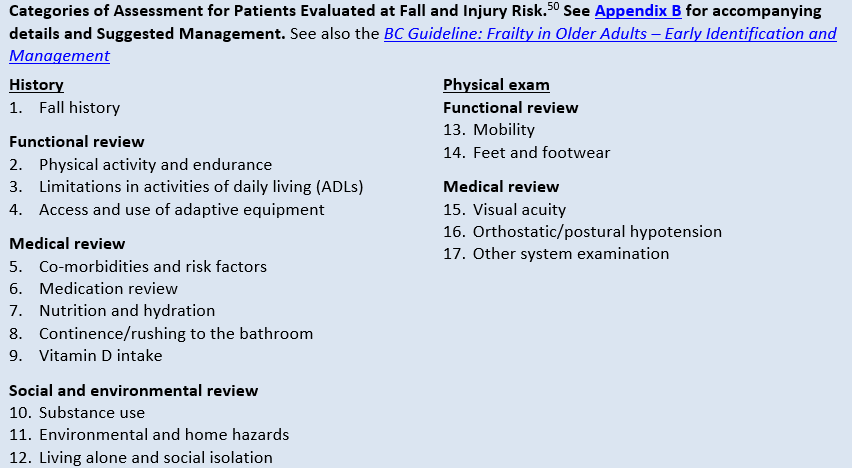What Does Dementia Fall Risk Do?
Table of ContentsNot known Details About Dementia Fall Risk The Main Principles Of Dementia Fall Risk Dementia Fall Risk - QuestionsDementia Fall Risk Fundamentals ExplainedGetting The Dementia Fall Risk To Work
You could be anxious since you have actually had a loss before or because you've noticed you're starting to feel unsteady on your feet. You may have seen changes to your health and wellness, or simply really feel like you're reducing a little. Whatever the reason, it isn't uncommon to come to be mindful and shed self-confidence, and this can quit you doing the points you made use of to do and make you really feel more isolated.If you have actually had a loss or you have actually started to really feel unstable, inform your doctor even if you really feel great otherwise. Your physician can check your balance and the means you stroll to see if renovations can be made. They might have the ability to refer you for a falls danger analysis or to the drops avoidance solution.
This details can be acquired via meetings with the person, their caregivers, and a testimonial of their clinical records. Begin by asking the specific regarding their background of drops, including the regularity and conditions of any type of recent drops. Dementia Fall Risk. Inquire concerning any kind of flexibility issues they may experience, such as unsteady or trouble strolling
Conduct a comprehensive review of the individual's drugs, paying specific attention to those known to boost the risk of falls, such as sedatives or medications that reduced high blood pressure. Identify if they are taking multiple drugs or if there have been current changes in their medication program. Review the person's home atmosphere for potential hazards that could boost the risk of drops, such as poor lights, loose carpets, or absence of grab bars in the washroom.
The Facts About Dementia Fall Risk Revealed
Guide the individual with the autumn threat assessment type, discussing each concern and taping their responses precisely. Make certain that the specific recognizes the objective of the evaluation and feels comfy providing honest answers. Determine the overall threat rating based upon the feedbacks supplied in the analysis kind. Figure out the individual's risk category (low, medium, or high) based on the complete rating and the presence of automatic high-risk status elements.
This strategy might consist of exercise programs to boost toughness and equilibrium, drug adjustments, home alterations, and references to other professionals as required. Regularly monitor the individual's development and reassess their danger of falls as required. Customize the care plan based upon adjustments in their health and wellness condition or home environment. Provide ongoing education and assistance to promote safety and reduce the threat of drops in their daily living tasks.
Numerous researches have actually shown that physical treatment can help to reduce the threat of falling in adults ages 65 and older. In a brand-new study (that considered drops risk in ladies ages 80 and older), scientists calculated the economic effect of choosing physical treatment to prevent falls, and they discovered that doing so conserves $2,144, including all the surprise costs of your time, pain, official statement missed out on life occasions, and the dollars spent for solutions.
3 Simple Techniques For Dementia Fall Risk
Checking your heart rate and blood pressure measurements at rest and while you transform positions (from sitting or lying to standing). A simple test of your thinking (cognitive) capacities. Analyzing your balance, stamina, and strolling ability. A simple vision examination. Assessing your feet and shoes. A home safety and security analysis. Based upon the examination results, your physiotherapist will design a plan that is customized to your details needs.
Older grownups that have problem strolling and speaking at the same time go to a higher risk of dropping. Dementia Fall Risk. To assist increase your safety and security throughout everyday activities, your physical specialist might develop a training program that will certainly challenge you to maintain standing and walking while you do another job. Examples consist of walking or standing while counting backward, having a discussion, or bring a bag of groceries
Your physical therapist also can recognize which activities you need to prevent to stay safe. Community-based drops avoidance programs aid individuals to: Lower their concern of falling. Establish goals for raising their exercise. Make their homes safer. Exercise more to boost their strength and equilibrium. These programs usually are led by volunteer instructors.
Fascination About Dementia Fall Risk

Measles, or rubeola, is a highly contagious, intense viral transmittable illness brought on by the measles infection. Some people think of measles as simply a rash and high temperature that clears in a few days; nevertheless, measles can create serious health and wellness complications, particularly in youngsters more youthful than 5-years-old. The best security versus measles is the measles, mumps, and rubella (MMR) vaccination.
Falls are a typical reason of injury amongst older grownups. According to the CDC, in one year alone, fall-related injuries added to over $50 billion in clinical prices (Dementia Fall Risk). In hospital settings, older adults go to specifically high risk of falls because their minimized wheelchair from being restricted to a space or bed.
Not known Incorrect Statements About Dementia Fall Risk

She has no history of drops, her stride is constant, and she voids with no concerns. The previous registered nurse states that she calls for support to the restroom when she requires to go.
Examples of typical fall interventions/measures consist of: Guaranteeing a person's essential products are within reach. Past understanding exactly how to make use of the Johns Hopkins Fall Threat Assessment Tool, it's vital that facilities include its use right into a much more detailed loss prevention plan.